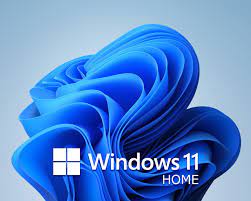In the past few years, Windows operating systems have continued to evolve, offering new features and enhanced security. With the launch of Windows 11, Microsoft has unveiled a brand new look at the user experience and features that has attracted the attention of tech-savvy enthusiasts and everyday users alike. One key aspect that has piqued curiosity is the future of Windows 11 Home key licensing, which promises to redefine how we access and personalize our computing experience. The blog will explore the ways in which these changes to licensing could influence the future of individual users and businesses.
A Glimpse into Licensing Evolution
For the longest time, Windows licensing has been straightforward, requiring users to purchase a key to activate their operating system. But, with Windows 11, Microsoft is expected to adopt a more flexible licensing model which could permit greater flexibility and control for the user. This is in line with the overall trend toward subscription-based services, offering consumers more freedom and adaptability. For example, users might soon enjoy a seamless transition between their personal and work devices, without having to use several keys, enhancing productivity and facilitating.
Personalization and User Experience
The shift of windows 11 home key licensing could have a significant impact on how users personalize their computing environments. By offering more dynamic license options Microsoft will be able to satisfy the various requirements of its customers regardless of whether they are novice users or professionals. Enhanced personalization capabilities could mean users can tailor their system settings as well as themes and applications more precisely, giving users an experience that is truly unique. This flexibility doesn’t only increase user satisfaction but also strengthens the bond between the consumer and the company.
Implications for Security and Support
With the expected changes to licensing, there could be implications for security and technical support. The more flexible licensing model may help improve security, allowing Microsoft to deploy patches and updates more quickly across different devices. Additionally, streamlined licensing might allow users to access support quicker, as their systems would be consistently monitored and updated. A proactive method of support and security would be an important benefit in a world where cyber security threats are becoming more sophisticated.
Looking Ahead
When we think about how we can improve the functionality of Windows 11 Home key licensing, it’s clear that Microsoft’s focus is on individualization, flexibility, and enhanced security. These changes reflect wider market trends toward a user-centric design and subscription models, which aim to provide a more tailored user experience that is efficient and effective. While the exact details of these licensing changes have yet to be fully unveiled, one thing is certain–the future in Windows 11 holds exciting possibilities for all types of users. No matter if you’re a casual gaming enthusiast or a professional with a flair for creativity, or a business executive These changes are sure to enhance your interactions with technology more intuitive and rewarding.

